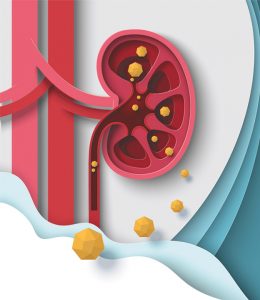

The Basics of Kidney Function
Before going into the effects of alcohol on kidney health, it’s essential to understand the basic functions of these vital organs. The kidneys are responsible for filtering waste products and excess fluids from the bloodstream, which are then excreted as urine. Additionally, they help regulate electrolyte levels, blood pressure, and the production of red blood cells. The part of the kidneys that does the work is called the nephron. It is a complex structure consisting of a glomerulus and a tubule, where filtration, reabsorption, and secretion processes occur.
Alcohol Consumption and Kidney Function
The impact of alcohol on kidney function depends largely on the amount and duration of consumption. Moderate alcohol consumption, defined as up to one drink per day for women and up to two drinks per day for men, may not significantly affect kidney health in healthy individuals. In fact, some studies suggest that moderate alcohol intake, particularly red wine, may have protective effects on the cardiovascular system due to its antioxidant properties.
However, excessive alcohol consumption, or binge drinking, can lead to acute and chronic kidney injury. One of the primary ways alcohol harms the kidneys is through dehydration. Alcohol is a diuretic, meaning it increases urine production and can lead to dehydration if not counteracted by adequate fluid intake. Dehydration reduces blood flow to the kidneys, impeding their ability to filter waste products effectively.
Chronic alcohol abuse can also cause structural and functional changes in the kidneys, leading to conditions such as alcoholic nephropathy. This condition is characterized by inflammation, fibrosis, and impaired kidney function, ultimately increasing the risk of kidney failure. Additionally, alcohol abuse is a leading cause of hypertension (high blood pressure), which is a significant risk factor for chronic kidney disease (CKD).
Other Risk Factors for Kidney Disease
It’s essential to recognize that alcohol consumption rarely occurs in isolation and often coexists with other risk factors for kidney disease. For example, heavy drinkers are more likely to smoke, have poor dietary habits, and engage in sedentary lifestyles, all of which contribute to poor kidney health. It’s also important to note that alcohol interacts with various medications, including those used to treat hypertension and other comorbidities, potentially exacerbating kidney damage.
Protecting Your Kidneys
If you choose to consume alcohol, it’s crucial to do so in moderation and with consideration for your overall health. Here are some tips for protecting kidney health while consuming alcohol:
. Stick to recommended guidelines for alcohol consumption to minimize the risk of kidney damage.
. Drink plenty of water before, during, and after consuming alcohol to counteract its diuretic effects and maintain adequate hydration.
. Maintain a balanced diet, engage in regular physical activity, and avoid smoking to reduce the burden on your kidneys.
. If you have risk factors for kidney disease or a history of heavy alcohol consumption, consider regular check-ups with your healthcare provider to monitor kidney function.
Drink Wisely for Better Kidney Health
While moderate alcohol consumption may not pose significant risks to kidney health in healthy individuals, excessive or chronic use can lead to several side effects, including kidney disease. Understanding the relationship between alcohol and kidney health is essential for making informed choices about alcohol consumption and prioritizing kidney health. By practicing moderation and following the other precautionary tips, you can mitigate the potential adverse effects of alcohol on your kidneys and overall well-being.
Take charge of your kidney health today! Don’t delay—take the first step towards a healthier future by calling VIPcare today. Call 239-747-7202 to schedule your appointment.
239-747-7202
www.getvipcare.com
9976 South Tamiami Trail, Ste 206
Estero, FL 33928
 Southwest Florida's Health and Wellness Magazine Health and Wellness Articles
Southwest Florida's Health and Wellness Magazine Health and Wellness Articles

